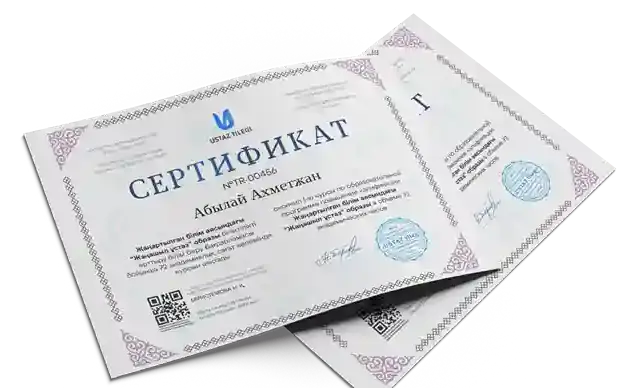| Unit of a long term planUnit 6 Travel and holidays.Lesson plan 61 | School: 19 |
| Date: 7.02.19 | Teacher’s name: Tureeva A
|
| Class: 6 “a,b,v” | Number present: | Number absent: |
| Lesson title | Language Focus: to be going to will / won'tPresenting predictions about the future.
|
| Learning objectives(s) that this lesson is contributing to | 6.C1 use speaking and listening skills to solve problems creatively and cooperatively in groups6.S3 give an opinion at sentence level on a limited range of general and curricular topics6.L8 understand supported narratives, including some extended talk, on an increasing range of general and curricular topics6.S2 ask simple questions to get information about a limited range of general topics6.UE8 use future forms will for predictions and be going to to talk about already decided plans on a limited range of familiar general and curricular topics6.W1 plan, write, edit and proofread work at text level with support on a limited range of general and curricular topic |
| Lesson objectives | All learners will be able to:Identify the theme, new words and use them as the basis for discussion.Demonstrate knowledge for usage of the structures: to be going to and Future Simple Tense.Transfer information from the given information into a graphic organizer.Most learners will be able to:Select, compile, and synthesize information for an oral presentationProvide a point of view in conversations and discussions; speak about plans. Some learners will be able to: Respond to and discuss the reading passage using interpretive, evaluative and creative thinking skills.Make a plan.Respond to and discuss the reading passage using interpretive, evaluative and creative thinking skills. |
| Value links | Cooperation, respect each other's opinion,support,functional literacy. |
| Crosscurricular links | Social Science, Psychology, Information Technology, Medicine, Geography, Biology. |
| Previous learning | Talking about travelling and holidays. |
| Useof ICT | Smart board for showing a presentation, getting additional information,playing the audio files. |
| Intercultural awareness | Students will be able to understand that people should be fond of adventures and be able to make a plan. |
| Health and Safety |
Breaks and physical activities used. Everyday classroom precautions will ensure that safety measures are provided to prevent the exposure of electrical power cords.
|
| Plan |
| Planned timings | Planned activities | Resources |
Beginning of the lesson7 min.
| The lesson greeting.The teacher sets the lesson objectives, letting students know what to anticipate from the lesson.Warm up. Free talk.When you want to speak about future plans and intentions what structures and grammar tenses can you use? We can use Future Simple and to be going to. Look at the picture and give your sentences:
|
Slide (useful phrases)
PicturesPPT
Student Book p.71Writing Worksheet
|
MainActivities
15 min.
13 min.
| Look at p.70 and find examples with to be going to. What is the difference between 2 structures?Ex. 1 - 2 p.71.Ex. 3 - 4 p.73Ex.3 p.71. Sentence completion task. Speak about the main character Ray Fines. Use ex.4 to make questions about his travelling.Put the sentences into interrogative form: Ex.5 p.73.In groups of 4 write 4 predictions and 4 intentions.A game" The best listener". The Sts. listen and try to pronounce correctly. Ex. 1 - 2 p.99 Work Book.
Imagine a perfect holiday. Write about your plans with to be going to and future Simple.
|
Student Book p.71 - p.73A table
Writing Worksheet
Student Book p.71 - p.73
Work Book p. 99. CD. MR.25 - MR.26
Writing Worksheet
|
Ending the lesson6 min.
|
Giving the home task. W.B. p.49 A mind - map
Students express their attitude to the lesson and give self-assessment using the method: “Six thinking hats”:Green: How can you use today's learning in different subjects?Red: How do you feel about your work today?White: What have you leant today?Black: What were the weaknesses of your work?Blue: How much progress have you made in this lesson? (Now I can, I still need to work on, I've improved in, Today I learnt... )Yellow: What did you like about today's lesson?Slide (Homework)Slide "Six thinking hats" |
Differentiation –how do you plan to give more support? How do you plan to challenge the moreable learners?
| Assessment –how are you planning to check learners’learning? | Critical thinking
|
| Differentiation can be achieved through the selection of activities, identification of learning outcomes for a certain student, provision of individual support to learners, selection of learning materials and resources based on the individual abilities of learners. | Assessment criteria:Identify the main idea in extended talks with little support.Apply topic related vocabulary in speech appropriately arranging words and phrases into well-formed sentences.Demonstrate the ability to participate in a conversation.Descriptor:A learner:selects an appropriate answer.completes the task.uses appropriate subject-specific vocabulary while speaking.discusses questions and answers the questions within the group.ObservationFeedback on the workPeer-assessment | Students think critically, exploring, developing, evaluating and making choices about their own and others’ ideas |








